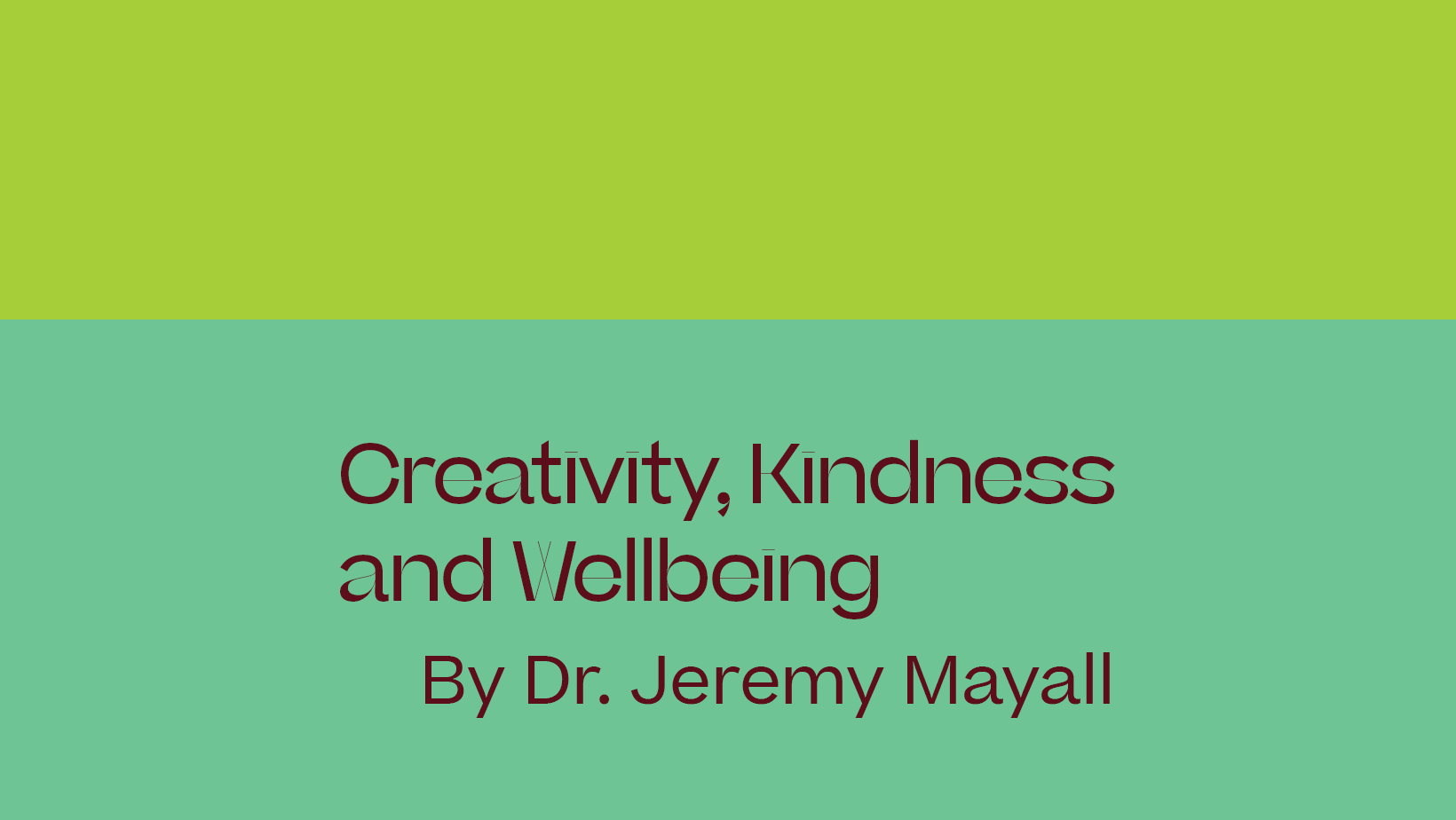Creativity, Kindness, and Wellbeing


Kindness is a world changing idea. No matter the scale of the act of kindness, the ripples it sends out have the power to make incredible unexpected changes into the future.
Since launching our Creative Acts of Kindness initiative, it has been remarkable to experience the conversation, the change in thought, the reflection, and the potential in what might be brought to life by these acts of creativity and kindness shared by local Waikato artists. These demonstrations of kindness through creative activity have the potential to be the catalyst that brings joy into someone’s life. They might brighten the day. They might provide a moment of rest and reset. They might inspire us to err on the side of kindness as we move throughout each day.
But, why Creative Acts of Kindness? And why now?
As we have gone through these past couple of years in a state of pandemic with COVID, we also exist in another state of pandemic in anxiety and stress. The sense of uncertainty and change can contribute to leaving people in a heightened state – sitting more regularly in the threat mode of a ‘fight or flight’ response, rather than in a reasonably relaxed functional state.
Studies are showing that when we spend long periods of time in threat mode, this has the potential to leave us with less capacity for compassion. But, on the flipside, proactively acting with compassion or being kind to others can actually change your physiology. This act of kindness can help to take you from threat into rest mode. This is a powerful contributor to our own sense of happiness, which has a powerful connection to our wellbeing.
So, as we have gone through this extended period of increased stress, this in turn is impacting our tendency towards kindness and compassion, and we have seen increased examples of negativity around. This negative output is not the default mode of humanity. In principle, Humankind is kind. We are wired that way. Just sometimes we forget.
We forget often because of our adrenalin powered lifestyles. Modern society has developed at such a massive rate, with increased demands for productivity and focus, which has all occurred faster than our ability as a species to develop our natural responses to it, so we are facing increased levels of stress. But there is a tool to counteract this. Kindness.
There are a number of researchers exploring this phenomenon. Dr. James R. Doty, clinical professor in the Department of Neurosurgery at Stanford University, suggests that:
“When someone acts with compassionate intention, it has a huge, huge positive effect on their physiology. It takes them out of the threat mode and puts them into the rest and digest mode. What happens when that occurs is it changes how they respond to events. Instead of a quick response, oftentimes based on fear or anxiety, it allows for a much more deliberative or discerning response which typically is much more effective, and more creative because it’s allowing your executive control area to function at its best.”
So the more we exercise kindness in our daily lives, the more we can adjust our internal functions towards a positive outcome. Engaging in kindness can result in changes in our heart rate, and blood pressure, whilst also having a positive impact on our hormones and immune system. Research is demonstrating that kindness over time can contribute to the length of your telomeres (the ends of your chromosomes – the longer they are, the longer they can replicate, the healthier you will be). Essentially any acts of kindness will have a positive impact on the quality of your life.
The impact of kindness also becomes a cycle of positive activity. The act of experiencing kindness inspires us to be compassionate to others. The giving and receiving of kindness has a positive shift on our mental and physical wellbeing. It also then inspires others to be compassionate. A perpetual feedback loop of kindness – that is a way to change our world.
Kindness can take many forms. For Creative Waikato, we believe that creative practice is a powerful tool for kindness. It can be an act of kindness for the creator as well as the recipient. The creative process can be a great tool for mindfulness, for processing emotions and experiences, and for getting into a flow state. Creative play is a key part of this. Make more time for creative play for you, your family, your colleagues and friends. Encourage moments of playful creativity.
Brian Sutton-Smith once said: “The opposite of play is not work, the opposite of play is depression”. In order to be kind to ourselves, we should take the opportunities we have to engage with arts, culture and creativity and build playful experiences into our daily lives. We should read those poems, listen to that music, look at those paintings, play games, draw things, sing songs, play. Be active in the way we experience the offerings around us. Take a lunchtime walk and try to find 5 examples of ‘art in the wild’.
We are hugely excited to share the various creative acts of kindness that will be activated by our awesome community of artists in the coming weeks. We look forward to celebrating the joy that will be brought to life, and to find more inspiration in the way kindness can be expressed in so many different creative ways. There will be lots to explore, lots to share, and lots to celebrate.
In the meantime…. what creative act of kindness could you do today?